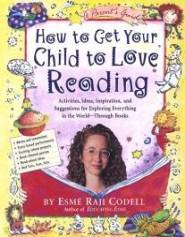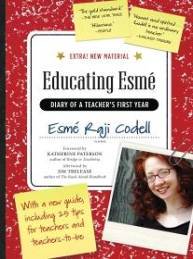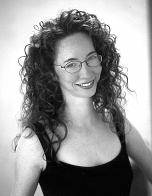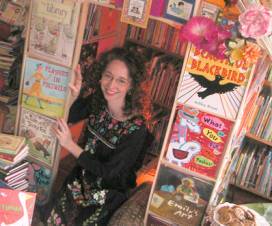What’s the best way for a teacher to revitalize herself or himself and stay inspired?
What kind of person do you encourage to go into teaching? What kind of person do you discourage from becoming a teacher?
Great question! I encourage anyone who has wanted to be 20 different things when they grow up to be a teacher. I think a solid teaching candidate is one who is comfortable with dichotomies. He or she should be compassionate but consistent, good at both laughing and crying, organized and good at thinking a few steps ahead but at the same time spontaneous enough to accept that every day–and every child–is going to be different.
I don’t think I’d discourage anyone from trying their hand at teaching. I would encourage people who get on a fast track to “give back” by committing the time to explore the craft and become credentialed before entering the classroom because the children deserve that much from us as professionals.
What’s the most memorable thing a child ever said to you?
“Thank you.”
What’s the one thing you think every teacher should try in the classroom?
 Read aloud! According to the national report “Becoming a Nation of Readers,” across the grade levels “the single most important activity for building the knowledge required for eventual success in reading is reading aloud to children.” More than that, it’s a joy. It builds community, and it’s something both teacher and student can look forward to every day. In a world of pedagogical broccoli, read-aloud is the chocolate cake. Visit my website, www.planetesme.blogspot.com, for reviews of the best new classroom read-alouds. Read aloud! According to the national report “Becoming a Nation of Readers,” across the grade levels “the single most important activity for building the knowledge required for eventual success in reading is reading aloud to children.” More than that, it’s a joy. It builds community, and it’s something both teacher and student can look forward to every day. In a world of pedagogical broccoli, read-aloud is the chocolate cake. Visit my website, www.planetesme.blogspot.com, for reviews of the best new classroom read-alouds. |
What are a few of your favorite children’s books?
I love picture books that I can share across the grade levels, such as Wolf by Becky Bloom, The Wretched Stone by Chris Van Allsburg, and The Empty Pot by Demi. I am a huge fan of the versatile picture book biography genre; Kid Blink Beats the World by Don Brown is always a hit. My favorite chapter book is King Matt the First, by Janusz Korczak, which is about a boy who tries to run a country of children. I also love classic greats like Jerry Spinelli’s Maniac Magee and Bernard Waber’s good ole Lyle the Crocodile series.
Is technology having an impact on children, teachers, and schools?
Yes, and I think the impact is largely positive! Technology offers a great opportunity for connection between home and school, plus online mentorship and professional development. It can streamline chores like grading and list-making. Creating classroom materials has become fun and easy using computers, and the results are attractive.
* * * * * * * * * * * * * * * * * * * * * * * * * * * * * * * * * * * * * * * * * * * *
The updated Educating Esmé comes out on September 1, 2009. Once you read it, you may not decide to roller-skate down the hall like Esmé, but no doubt the ideas will be flowing for creative and unique approaches that you can try this year. You’ll invigorate yourself and capture your students’ attention. What a wonderful way to start your school year!
Enjoy!
|
|
| Karen |





Thanks for helping those of us who were teaching when the book first came out that we are getting OLD(er)!
More than that, thanks for the interview. An Esme “booster” shot it the perfect cure for what ails you!
“While her approach isn’t exactly by the books, Esmé certainly is effective and inspiring.” Some folks are just naturally born teachers and, at times, a teaching education gets in the way. Shelby
Good question, “What kind of person do you encourage to go into teaching? What kind of person do you discourage from becoming a teacher?” I would discourage someone from being a teacher who just wants a job and who has difficulty interacting with people and who doesn’t want to work hard at their trade.
Cristy